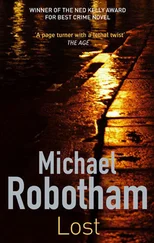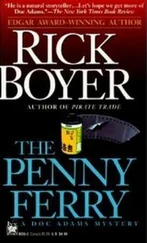Yanus is still talking. “I hope Mr. Ruiz is being looked after. I am very sorry I stabbed him.”
My eyes haven’t left Spijker. “What are you doing?”
“Mr. Yanus is being released. We may need to question him again later.”
The fat lawyer is tapping his foot on the floor impatiently. It has the effect of making his face wobble. “Samira Khan has confirmed that Mr. Yanus is her fiancé. She is pregnant by him.” His tone is extravagantly pompous, with just a hint of condescension. “She has also given a statement corroborating his account of what happened last night.”
“No!”
“Fortunately, for you, Mr. Yanus has agreed not to make a formal complaint against you or your colleague for assault, malicious wounding and abducting his fiancée. In return, the police have decided not to lay charges against him.”
“Our investigations are continuing,” counters Spijker.
“Mr. Yanus has cooperated fully,” retorts the fat lawyer, dismissively.
Lena Caspar is so small that I almost don’t see her behind him. I can sense my gaze flicking from face to face like a child waiting for a grown-up to explain. Yanus has withdrawn his hand. Almost instinctively he slides it inside his jacket, where his knife would normally be.
I imagine that I must look dazed and dumbstruck, but the opposite is true. I can see myself reflected in the dozens of glass panels around the walls and the news hasn’t altered my demeanor at all. Internally, the story is different. Of all the possible outcomes, this one couldn’t be anticipated.
“Let me talk to Samira.”
“That’s not possible.”
Lena Caspar puts her hand on my arm. “She doesn’t want to talk to anyone.”
“Where is she?”
“In the care of the Immigration and Naturalization Service.”
“Is she going to be deported?”
The fat lawyer answers for her. “My client is applying for a visa that will allow his fiancée to remain in the Netherlands.”
“She’s not his fiancée!” I snap.
The lawyer inflates even further (it barely seems possible). “You are very fortunate, Miss Barba, that my client is so willing to forgive. You would otherwise be facing very serious charges. Mr. Yanus now demands that you leave him alone, along with his fiancée. Any attempt by you to approach either of them will be taken very seriously.”
Yanus looks almost embarrassed by his own generosity. His entire persona has softened. The cold, naked, unflinching hatred of last night has gone. It’s like watching a smooth ocean after a storm front has passed. He extends his hand again. There is something in it this time—my mobile phone and passport. He hands them to me and turns away. He and the fat lawyer are leaving.
I look at Spijker. “You know he’s lying.”
“It makes no difference,” he replies.
Mrs. Caspar wants me to sit down.
“There must be something,” I say, pleading with her.
“You have to understand. Without Samira’s testimony there is no case to answer, no evidence of forced pregnancies or a black market in embryos and unborn babies. The proof might lie in DNA or paternity tests, but these can’t be done without Samira’s permission and invasive surgery that could endanger the twins.”
“Zala will confirm my story.”
“Where is she?”
The entrance doors slide open. The fat lawyer goes first. Yanus pulls a light blue handkerchief from his pocket and wipes his forehead. I recognize the fabric. He rolls it over and over in his fingers. It’s not a handkerchief. It’s a headscarf. Zala’s hijab!
Spijker sees me moving and holds me back. I fight against his arms, yelling accusations out the door. Yanus turns and smiles, showing a few teeth at the sides of his mouth. A shark’s smile.
“See in his hand—the scarf,” I cry. “That’s why she lied.”
Mrs. Caspar steps in front of me. “It’s too late, Alisha.”
Spijker releases my arms slowly and I shake his fingers loose. He’s embarrassed at having touched me. There’s something else in his demeanor. Understanding. He believes me! He had no choice but to release Yanus.
Frustration, disappointment and anger fill me until I feel like screaming. They have Zala. Samira is sure to follow. For all the bruises and bloodshed, I haven’t even slowed them down. I’m like Wile E. Coyote, flattened beneath a rock, listening to the Road Runner’s infernal, triumphant, infuriating “beep, beep!”
Ruiz’s skin is a pallid gray and his eyes are bloodshot from the morphine. The years have mugged him in his sleep and he looks every one of his sixty birthdays.
“I knew you were gonna be okay,” I say. “Your hide is thicker than a rhino’s.”
“Are you saying my arse looks big in these pajamas?”
“Not in those pajamas.”
The curtains are open and the remains of the day are collecting on the far horizon.
It might be the morphine or his ridiculous male pride, but the DI keeps bragging about the number of stitches he needed in his chest and arm. Next we’ll be comparing scars. I don’t need a comparison—mine are bigger than his.
Why is it always a competition with men? Their egos are so fragile or their hormones so strong that they have to prove themselves. What tossers!
I give him a big wet kiss on his cheek. He’s lost for words.
“I brought you something, sir.”
He gives me a quick look, unsure whether to trust me. I pull a bottle of Scotch from a paper bag. It’s a private joke. When I was lying in hospital with a busted spine Ruiz brought me a bottle. It’s still the only time I’ve ever had alcohol. A one-off drink, sucked through a crazy straw, that made my eyes water and my throat burn. What do people see in alcohol?
I crack the seal and pour him a drink, adding a little water.
“You’re not having one?”
“Not this time. You can have mine.”
“That’s very generous of you.”
A nurse walks in. The DI hides the glass. I hide the bottle. She hands him a little plastic cup with two pills inside. The fact that we’ve stopped talking and look guilty encourages her to pause at the door. She says something in Dutch. It might be “bottom’s up,” but I doubt it.
“I think I’m going to stay here,” says Ruiz. “The food is much better than the NHS muck and the nurses have a certain charm. They remind me of my house mistresses at boarding school.”
“That sounds disturbingly like a sexual fantasy.”
He half grins. “Not completely.”
He takes another sip. “Have you ever thought about what you’d like to happen when you die? The arrangements.”
“I’ve made a will.”
“Yeah, but did you stipulate anything for the funeral? Cremation or burial or having your ashes sprinkled off the end of Margate Pier?”
“Not specifically.” This is getting rather morbid.
“I want my ashes put into a rocket.”
“Sure, I’ll put in a call to NASA.”
“In a firework rocket. I want to be blasted into a thousand falling stars. They can do that now—put ashes in fireworks. I read about it somewhere.”
“Go out with a bang.”
“A blaze of glory.”
He smiles and holds out his glass for more. “Not yet, of course.”
“Of course.”
The truth is, I have thought about it. Dying. During the autumn and winter of my discontent—the months of surgery and physiotherapy, when I couldn’t wash, feed or care for myself—a small, secret, childlike part of me feared that I would never walk again. And an unspoken, guilt-ridden, adult part of me decided I would rather die if that happened.
Everyone thinks I’m so strong. They expect me to face autumns and winters like that and bitch-slap them down, make them heel. I’m not so strong. I only pretend.
Читать дальше












